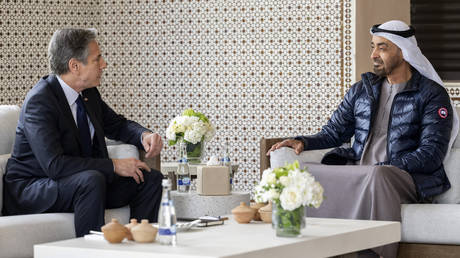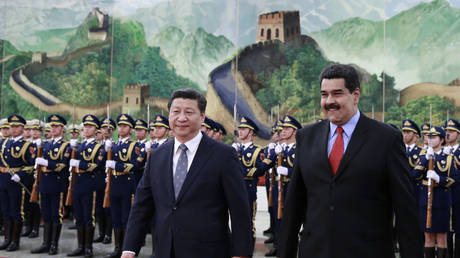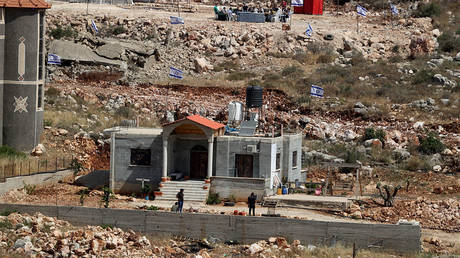
Washington’s reported attempt to ease diplomatic tensions with UAE was revealed by Axios news site
US Secretary of State Antony Blinken apologized to Abu Dhabi Crown Prince Mohammed bin Zayed during their meeting in Morocco last month, Axios reported on Thursday. Blinken’s apology was apparently meant to fix the American-Emirati relationship over Washington’s response to January’s attack on the UAE by the Houthi rebels.
During the meeting, Blinken admitted that the Biden administration’s response to the attack was not prompt enough and said he was sorry, according to Axios sources.
“The Secretary made clear that we deeply value our partnership with the UAE and that we will continue to stand by our partners in the face of common threats,” an unnamed senior State Department official shared with Axios news site. However, he declined to comment on the private diplomatic exchange of his boss.
In January, Yemen’s Houthi rebels sent drones to attack the Emirati capital killing three and injuring six people. The rebels said that the strike came in retaliation for the UAE’s support of the international coalition bombing the war-torn country. The Saudi-led coalition responded with more airstrikes in Yemen killing at least 60 and injuring over a hundred people.
Back then Washington condemned the attack on Abu Dhabi on the day it happened. “We will work with the UAE and international partners to hold [Houthis] accountable,” declared US National Security Advisor Jake Sullivan in an official statement. “Our commitment to the security of the UAE is unwavering and we stand beside our Emirati partners against all threats to their territory,” he added.
However, the Emiratis were reportedly disappointed by Washington’s reluctance to designate Yemen’s Houthi movement as a terrorist organization and to send more military aid.
Earlier, the United Nations stated that the designation of Houthis as a terror group would only aggravate the Yemeni conflict. Humanitarian groups have also expressed their concerns that attaching such a title to the rebels would impede aid deliveries to the country, which is already undergoing a humanitarian catastrophe.
In February, amid his visit to the UAE, US General McKenzie was denied a meeting with the Emirati leader, WSJ reported citing a local official.
Seeking to defy the US even further, Abu Dhabi has refused to vote in favor of a UN resolution condemning the Russian military operation in Ukraine while also abstaining from the General Assembly’s vote on the exclusion of Moscow from the Human Rights Council.
In March, the Emirati Ambassador to Washington Yousef Al Otaiba admitted that relations between the two nations were strained. “It is like any relationship. It has strong days where the relationship is very healthy and days where the relationship is under question. Today, we’re going through a stress test, but I am confident that we will get out of it and get to a better place.”
However, Blinken’s reported effort to reconcile with the Crown Prince has apparently worked. Following the meeting in Morocco in March, the same Abu Dhabi envoy told Axios that Blinken helped to “move the relationship between the UAE and the US back on the right track.”
The Emirates remain Washington’s key military ally in the region with nearly 2000 US soldiers and airmen stationed at Abu Dhabi’s al-Dhafra airbase. Both countries supported Saudi Arabi’s ongoing war against the Houthis in Yemen, though the US ceased “offensive” operations there last year, and the UAE withdrew its ground troops in early 2020. Yet the UAE continues to back anti-Houthi groups on the ground, and the US continues to support Saudi Arabia and its allies with arms sales, intelligence sharing, and defensive support.
Yemen’s civil war – which pits the Houthis against the Saudi-backed government of Abdrabbuh Mansur Hadi and several other factions – is currently in its eighth year having claimed the lives of some 233,000 people. The conflict has been described by the UN as the “world’s worst humanitarian crisis” with 20 million Yemenis suffering from hunger and malnutrition.
In early April, a UN-brokered ceasefire was announced in Yemen. The truce corresponds with the Muslim Holy month of Ramadan. Just days later, exiled president Hadi handed power to a new presidential council.




